Loading the player...
Combination Therapy Fails to Meet Primary Endpoints in HR+ HER2- Breast Cancer Treatment
A phase 3 clinical trial examining the impact of combining exemestane and entinostat, showed the duo did not meet the endpoints researchers had been hoping for as a potential treatment for HR+ HER2- breast cancer.
The trial results were presented at the annual San Antonio Breast Cancer Symposium, where researchers noted that the combination resulted in a low overall response rate and a short timeframe of progression-free survival, despite data from an earlier phase 2 study showing the potential for successful treatment.
Roisin Connolly, a medical oncologist at Cork University Hospital, told MD/alert, that the previous findings made the results of the trial that much more disappointing.
"So, I think what we've learned is that it's extremely important to confirm phase two findings in larger phase three studies, and we're just very glad that we had the opportunity to do so, that we were able to complete our accrual and are very grateful to all the patients who participated to help answer this important question," Dr. Connolly said.
Patients enrolled in the trial were randomized to receive either exemestane and entinostat, or exemestane and placebo.
In addition to PFS and OS, the researchers also explored safety, objective response rate, and the predictive value of lysine acetylation.
The researchers noted that the median progression-free survival in the entinostat arm was 3.3 months, compared to 3.1 months in the placebo arm. The overall survival rate was 4.6% in the first group and 4.3% in the second.
The median overall survival in the entinostat arm was 23.4 months compared to 21.7 months in the placebo arm.
During the presentation, the researchers also noted a “significantly higher increase in lysine acetylation by C1D15” in the entinostat arm compared to placebo. The most common adverse events in the entinostat arm were neutropenia and hypophosphatemia, with significantly fewer adverse events reported in the placebo group.
While the trial did not produce the results they were hoping for, Connolly said there is more work to be done and more to be learned from their findings.
"We also have access to archival tissue from a large cohort of patients in the trial. And there are interesting things that we can investigate, including for example, specific mutations that may be linked to androgen resistance. And I think what we're also very excited to do is to evaluate more closely the large body of patient-reported outcome data that we have collected for these over 600 patients. And I think that's going to give us a lot of information as to how patients are feeling when they're receiving these treatments, in particular, the endocrine therapy backbone, which remains a standard of care at the moment. And so further evaluation of those also will give us insight into how we might look after these patients better."
She added that while the results of a clinical trial are significant, it can be equally, if not more important to keep the human aspect of the work in mind, whether the trials meet the designated endpoints.
"I think patients put their trust in us as doctors and as clinical trialists. And I think as clinical trialists, we have to make sure that the trials that we open have as robust data supporting them as possible," Dr. Connolly continued. "And we truly did believe that we had that based on the laboratory evidence and the clinical trial evidence moving into this phase three. But obviously, not every trial ends up with a positive result, and so patients need to be counseled very carefully when they're considering participation in the clinical trial about the standard of care, alternative options, and what the potential outcome of these trials might be."
By Adam Hochron
The trial results were presented at the annual San Antonio Breast Cancer Symposium, where researchers noted that the combination resulted in a low overall response rate and a short timeframe of progression-free survival, despite data from an earlier phase 2 study showing the potential for successful treatment.
Roisin Connolly, a medical oncologist at Cork University Hospital, told MD/alert, that the previous findings made the results of the trial that much more disappointing.
"So, I think what we've learned is that it's extremely important to confirm phase two findings in larger phase three studies, and we're just very glad that we had the opportunity to do so, that we were able to complete our accrual and are very grateful to all the patients who participated to help answer this important question," Dr. Connolly said.
Patients enrolled in the trial were randomized to receive either exemestane and entinostat, or exemestane and placebo.
In addition to PFS and OS, the researchers also explored safety, objective response rate, and the predictive value of lysine acetylation.
The researchers noted that the median progression-free survival in the entinostat arm was 3.3 months, compared to 3.1 months in the placebo arm. The overall survival rate was 4.6% in the first group and 4.3% in the second.
The median overall survival in the entinostat arm was 23.4 months compared to 21.7 months in the placebo arm.
During the presentation, the researchers also noted a “significantly higher increase in lysine acetylation by C1D15” in the entinostat arm compared to placebo. The most common adverse events in the entinostat arm were neutropenia and hypophosphatemia, with significantly fewer adverse events reported in the placebo group.
While the trial did not produce the results they were hoping for, Connolly said there is more work to be done and more to be learned from their findings.
"We also have access to archival tissue from a large cohort of patients in the trial. And there are interesting things that we can investigate, including for example, specific mutations that may be linked to androgen resistance. And I think what we're also very excited to do is to evaluate more closely the large body of patient-reported outcome data that we have collected for these over 600 patients. And I think that's going to give us a lot of information as to how patients are feeling when they're receiving these treatments, in particular, the endocrine therapy backbone, which remains a standard of care at the moment. And so further evaluation of those also will give us insight into how we might look after these patients better."
She added that while the results of a clinical trial are significant, it can be equally, if not more important to keep the human aspect of the work in mind, whether the trials meet the designated endpoints.
"I think patients put their trust in us as doctors and as clinical trialists. And I think as clinical trialists, we have to make sure that the trials that we open have as robust data supporting them as possible," Dr. Connolly continued. "And we truly did believe that we had that based on the laboratory evidence and the clinical trial evidence moving into this phase three. But obviously, not every trial ends up with a positive result, and so patients need to be counseled very carefully when they're considering participation in the clinical trial about the standard of care, alternative options, and what the potential outcome of these trials might be."
By Adam Hochron
.jpg)
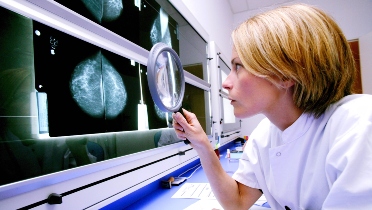



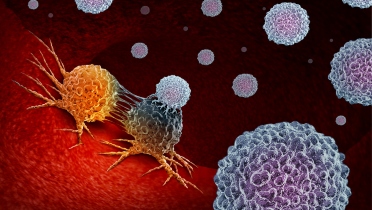
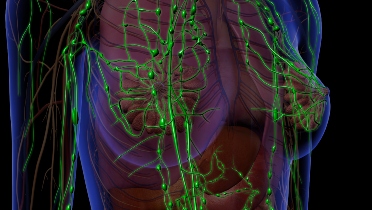
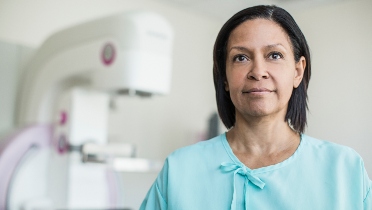


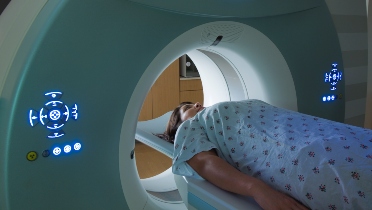
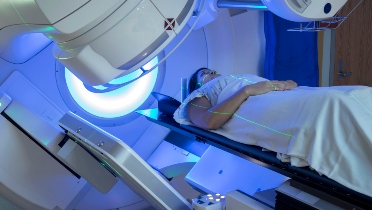




.jpg)

.jpg)
.jpg)
.jpg)
.jpg)
.jpg)
.jpg)
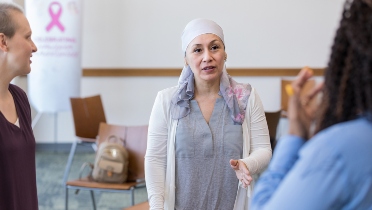
.jpg)

.jpg)


.jpg)
.jpg)
.jpg)

.jpg)
.jpg)
.jpg)
.jpg)
.jpg)

.jpg)
.jpg)
.jpg)
.jpg)
.jpg)
.jpg)
.jpg)
.jpg)

.jpg)

.jpg)
.jpg)

.jpg)
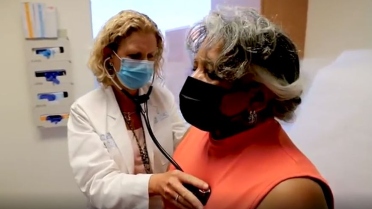
.jpg)

.jpg)
.jpg)
.jpg)
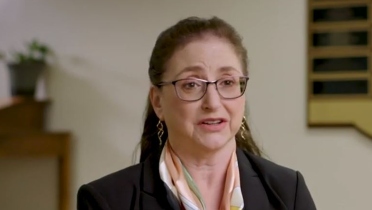
.jpg)
.jpg)
.jpg)
.jpg)

.jpg)

.jpg)

.jpg)
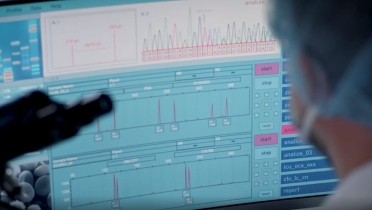
.jpg)
.jpg)
.jpg)

.jpg)

.jpg)
.jpg)
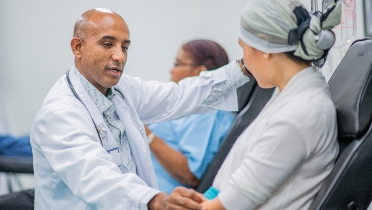
.jpg)
.jpg)
.jpg)
.jpg)
.jpg)
.jpg)
.jpg)

.jpg)
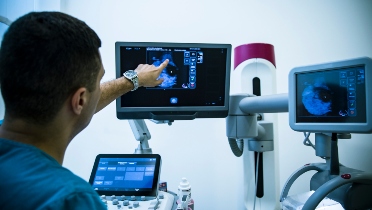


.jpg)
.jpg)
.jpg)
.jpg)
.jpg)
.jpg)
.jpg)
.jpg)
.jpg)
.jpg)

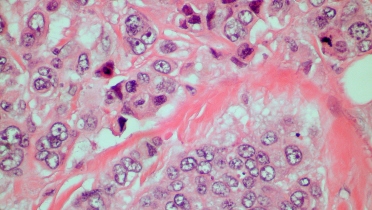
.jpg)
.jpg)
.jpg)
.jpg)
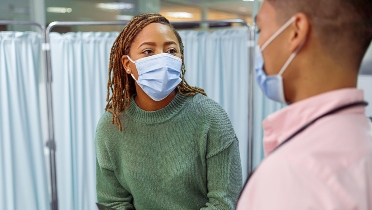
.jpg)

.jpg)
.jpg)


.jpg)
.jpg)
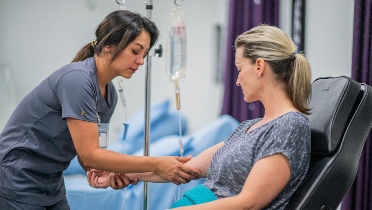
.jpg)

.jpg)
_.jpg)
.jpg)
.jpg)
.jpg)
.jpg)
 Featured Breast Cancer Videos
Featured Breast Cancer Videos.jpg)